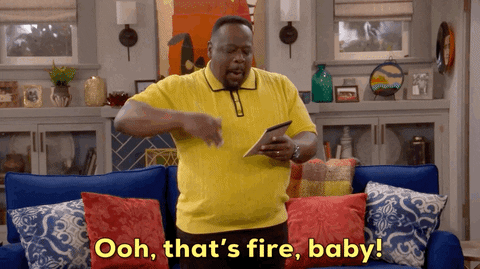Why is poorly written in quotes? Because a lot of what makes a book “poorly written” is subjective.
It’s different for everybody.
Generally, there are some things that we can sort of agree upon as a group, but lots of people are going to disagree about whether or not these count as being poorly written.
You won’t see a lot of these pop up in published novels very often because a lot of it gets edited out in the pre-publication stage.
Having said that, there are definitely people who put their books to market without having edited them thoroughly, and they will have more of these problems.
I think the easiest thing to point to (which most of us will agree on) when we say that something is poorly written is a lot of grammatical mistakes, a lot of spelling errors, a lot of like basic misunderstanding of how to format a manuscript.
By this I mean not changing to a new paragraph when you have a new speaker in dialogue, not using opening and closing quotations and the commas and periods that go along with them appropriately, not attributing dialogue properly, not capitalising things the right way, not spelling things the right way, using a lot of words that sound the same but look differently on the page, or words that are close to the one that you meant to say but are not exactly quite the right word.
All of this, especially when combined (as it often is), makes it feel like the writer isn’t very good at their own language.
That’s usually the thing that people will harp on quickly and easily, because most of us know and understand those rules and, so, they’re very easy to identify.
These rules are also mostly objective, meaning that the basic mechanical principles of writing are a lot easier to identify.
Once we move beyond the basic grammatical issues, the next thing that often gets pointed out as poor writing, is when the text doesn’t have good variants in the writing style and sentence structure, or when the syntax is overly simplistic (to the point of being boring).
This is where a novel or a first draft of a novel feels a lot like a school essay; every single paragraph has five to seven sentences in it, and every single sentence starts with the subject and ends with the verb, and every single one of those sentences has roughly the same number of words to them, and none of the words are very complex.
The text moves in a very linear fashion; this happened and then that happened because this happened… and every single paragraph is about the same length, and it gets very boring and very dry (very, very quickly).
On the flip side of that, we have something called purple prose, in which the text is so flowery and so descriptive, the sentences so meandering (but not in a beautiful or interesting way, just in a confusing way) it’s just boring.
So these are usually writers who learned how to mechanically write correctly to finish a class, but they didn’t do enough reading and practising on their own to be able to really absorb the way that language can be used as an art form.
These books also start to feel very boring, very flat, very bland, very quickly.
Then we move into the things that are much more subjective.
This is when we are talk about things like there not being a satisfying or fulfilling character arc, there not being enough showing of emotion on the page.
There’s a lot of telling, and it feels very bland and boring.
There’s a lot of description on the things that don’t matter, while ignoring the things that do matter.
Or there’s a story arc that you get to the end of, and you’re like, “Well, what was the point of that? We didn’t learn anything, we didn’t do anything, we didn’t grow in any sort of way.”
The world building can be flat, the characters can be flat, the setting can be uninteresting, it can be like a white room setting in which there’s no real description of what’s going on around the characters, they just sort of exist and are having dialogue, but none of it really means anything.
All this becomes very subjective, because your definition of a rich and fulfilled setting might be different than mine.
Your idea of a fantastic character arc might be different than mine.
This particularly happens when characters are presented to audiences without understanding the audience, causing them to sit there and say, “Well, that was is boring as hell. Why does anybody want to watch that movie?”
For example, Marvel’s Thor being the expected female audience favourite, but it turning out to be Loki instead.
Sometimes it’s a hit and miss on the part of the creators, other times it just means you’re not the intended target audience.
So, this is very subjective.
Where some people see something empowering and fun and like, “Oh my gosh! This is the greatest story” other people would be like, “Yeah, well, that’s not for me”.
Bad writing can be very subjective and agreeing on what makes writing bad isn’t always easy.
Want to get more out of reading books?

Grab this FREE guide on how to start a reading journal, complete with review templates, reading trackers and bingo sheets.
Understand yourself better as a reader, engage more with the books you read & make space for creative self-expression. Get it now!





